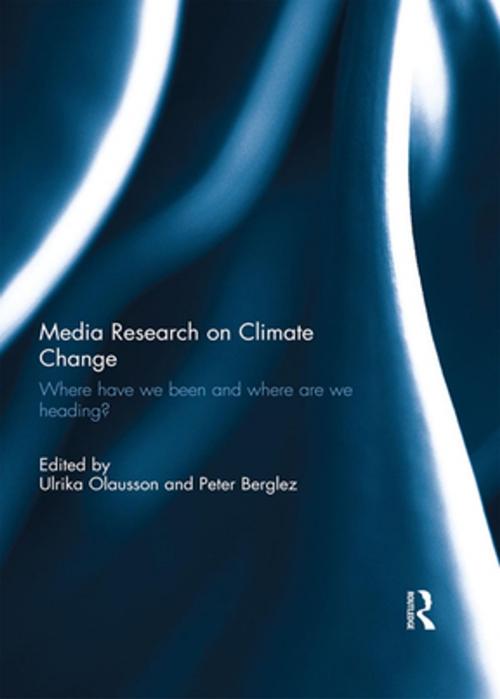Media Research on Climate Change
Where have we been and where are we heading?
Nonfiction, Science & Nature, Science, Biological Sciences, Environmental Science, Nature, Environment, Environmental Conservation & Protection, Social & Cultural Studies, Social Science| Author: | ISBN: | 9781315415154 | |
| Publisher: | Taylor and Francis | Publication: | April 19, 2018 |
| Imprint: | Routledge | Language: | English |
| Author: | |
| ISBN: | 9781315415154 |
| Publisher: | Taylor and Francis |
| Publication: | April 19, 2018 |
| Imprint: | Routledge |
| Language: | English |
Research on media coverage of climate change, as a particular subfield of environmental communication research, has proliferated over the past decade. This book sets out to consider what conclusions can be drawn in light of the existing body of work, what lessons can be learnt, what are the challenges to be met, and what are the directions to be taken in order to further develop media research on climate change. The mixture of articles in this volume serve well to illustrate the range of empirical, theoretical, and methodological approaches subsumed under the broad heading of "media studies on climate change." Some contributions focus on the past—how the subfield has developed and what we can learn from that—and some look toward the future. Either way, all the authors share the ambition to suggest important avenues of research, be they centered on media, context, applicability of results, or theoretical advancement. As such they make a valuable contribution to identifying important directions for future research on the role of the media in communicating climate change. This book was previously published as a special issue of Environmental Communication.
Research on media coverage of climate change, as a particular subfield of environmental communication research, has proliferated over the past decade. This book sets out to consider what conclusions can be drawn in light of the existing body of work, what lessons can be learnt, what are the challenges to be met, and what are the directions to be taken in order to further develop media research on climate change. The mixture of articles in this volume serve well to illustrate the range of empirical, theoretical, and methodological approaches subsumed under the broad heading of "media studies on climate change." Some contributions focus on the past—how the subfield has developed and what we can learn from that—and some look toward the future. Either way, all the authors share the ambition to suggest important avenues of research, be they centered on media, context, applicability of results, or theoretical advancement. As such they make a valuable contribution to identifying important directions for future research on the role of the media in communicating climate change. This book was previously published as a special issue of Environmental Communication.















